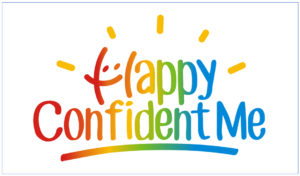We all want our children to be honest and never to lie to us or others. However, lying is actually a normal part of children’s development and children can start lying as early as the age of 2. How we choose to react and how we deal with the instances where our children are lying is important because research shows that our reactions have a significant effect on whether our children are honest with us in future.
Indeed, it is important to understand more about how children view lying, and also to understand our own attitudes and reactions towards it. For example, research has found that children who believe that their parents will react negatively if they confess to lying are far less likely to confess than children who believe that their parents will have a more positive reaction. In other words, if children believe that their confession will be met with “I’m disappointed by your actions, but I really appreciate you being honest with me”, then they are much more likely to tell the truth, even if they believe that they could face a consequence as a result.
There also tends to be a distinction between how younger children and older children view lying in that older children are more likely to believe that telling the truth, even if there’s a risk of punishment, is the right thing to do. Younger children still experience feelings of guilt and understand that lying is wrong, but are less likely to confess because they expect their parents to react badly.
Also, when our children behave rudely or are mean or hurtful in some way, our immediate reaction as parents is usually to prompt them to say sorry. We do this because we want them to take responsibility for their actions, because we don’t want people to think badly of them and most of all, we do it because we truly want them to be sorry.
The problem is that children don’t always understand what they have done wrong and might not feel particularly sorry for their behaviour as a result. So when we tell them to say sorry and to say it with sincerity, what we are actually doing is telling them to lie, which can be confusing for children when we are simultaneously trying to teach them that lying is wrong! It’s important therefore to give children the space to think about their actions as this is the only way that they’ll truly begin to understand the implications of their behaviour.
Apologies have to be sincere in order for them to have the desired effect. So rather than forcing our kids to lie by saying sorry when they don’t really mean it and to prevent them from lying in the first place, try one of the following approaches instead, as this will enable you to react in the best possible way:
- You may not be happy about your child’s behaviour and may feel that they should be punished for it, and of course children should experience consequences to their actions. But if you want to maintain a strong and loving connection with your child, then it’s crucial that you avoid reacting with anger and accusations, and show them instead that you value and appreciate their honesty in telling you in the first place. This helps to keep the lines of communication open and makes it far more likely that your children will want to open up to you again in future.
- When your children are mean or hurtful in some way, don’t immediately jump to the conclusion that there’s a victim and a perpetrator. It’s much more effective to start by asking what has happened. Then give all parties a chance to speak and relate their version of events because this shows that you’re prepared to listen without judgement or anger.
- Help your child to problem-solve by identifying how their actions affected the other people involved and then encourage them to think about how the situation could be rectified by asking them “What could you do about this?”.
- The most effective way of teaching children to understand how their actions and words can affect those around them is by modelling empathy ourselves. If they see that we are kind to others, own our mistakes and say sorry when we upset or offend someone, they are far more likely to adopt this behaviour themselves.
- Lastly, with children older than five it’s always useful to initiate a problem-solving session. You can do this at any time as this is about preventing them from lying in future rather than trying to deal with lying after it has occurred. Use this problem-solving session to highlight the importance of trust and honesty and you can do this by asking them “How would you feel if I wasn’t truthful with you about something, would it make you trust me more or less?”. If they answer ‘less’ as the majority of children will, then you can answer with “Well, that’s exactly how I feel when you lie to me”. Explain to them that while trust takes a long time to build, it only takes one lie for it to be damaged and that’s why it’s so important to tell the truth, even if it means that they’ll get a consequence for it.
For more help and information on how you can become more confident in your approach to parenting, you can read our books or contact us directly if you have a specific issue you want to deal with.














































Comment Yes understand the reasoning. So think for a few minutes before you say what comes into your head. And don’t jump to conclusions, talk things through.